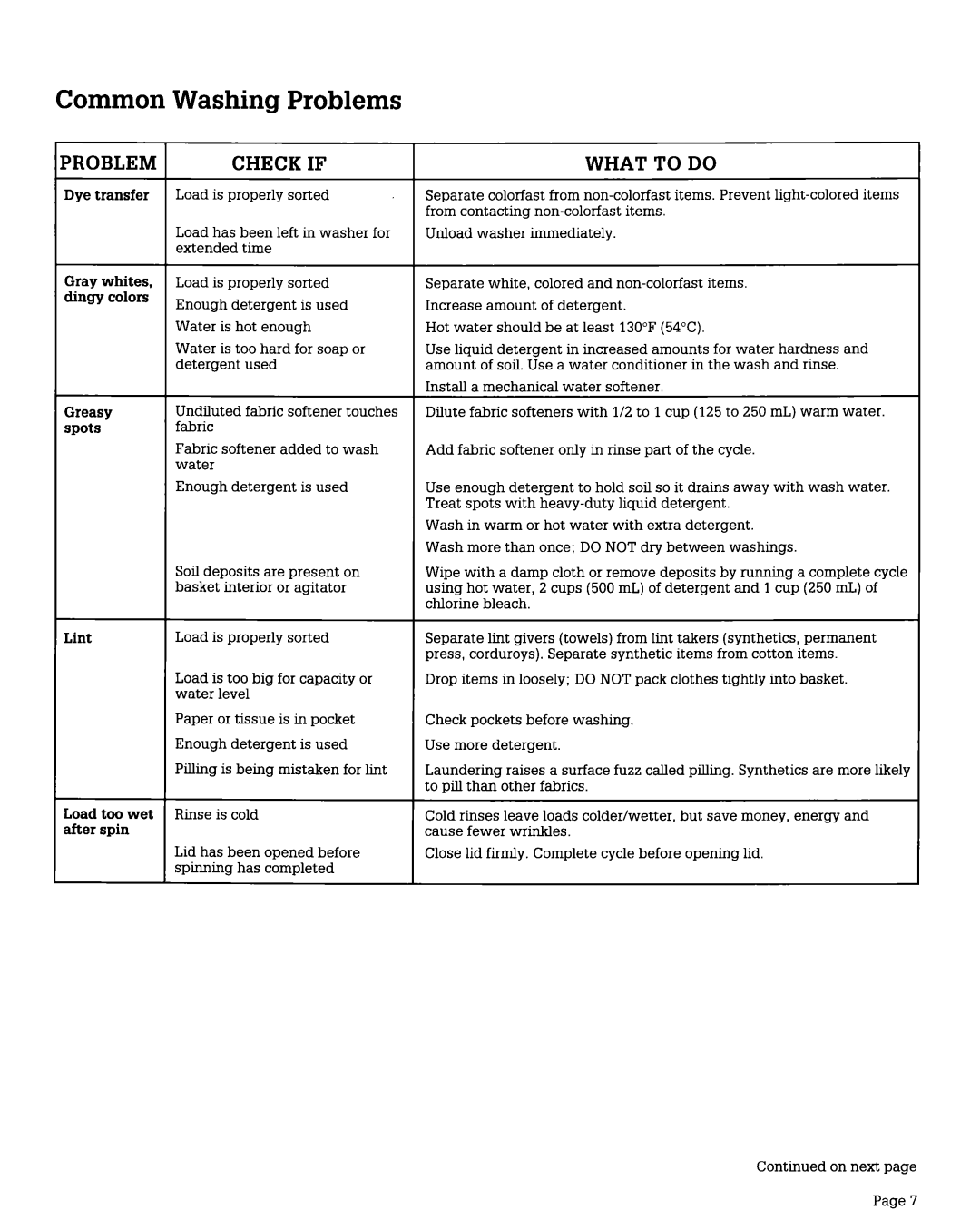
Common Washing Problems
PROBLEM CHECK IF
Dye transfer Load is properly sorted
Load has been left in washer for extended time
Gray whites, Load is properly sorted dingy colors Enough detergent is used
Water is hot enough
Water is too hard for soap or detergent used
Greasy Undiluted fabric softener touches
spotsfabric
Fabric softener added to wash water
Enough detergent is used
Soil deposits are present on basket interior or agitator
LintLoad is properly sorted
Load is too big for capacity or water level
Paper or tissue is in pocket
Enough detergent is used
Pilling is being mistaken for lint
Load too wet Rinse is cold after spin
Lid has been opened before spinning has completed
WHAT TO DO
Separatecolorfast from
Unload washer immediately.
Separatewhite, colored and
Hot water should be at least 130°F(54°C).
Use liquid detergent in increased amounts for water hardness and amount of soil. Use a water conditioner in the wash and rinse.
Install a mechanical water softener.
Dilute fabric softeners with l/2 to 1 cup (125 to 250 mL) warm water.
Add fabric softener only in rinse part of the cycle.
Use enough detergent to hold soil so it drains away with wash water. Treat spots with
Wash in warm or hot water with extra detergent. Wash more than once; DO NOT dry between washings.
Wipe with a damp cloth or remove deposits by running a complete cycle using hot water, 2 cups (500 mL) of detergent and 1 cup (250 mL) of chlorine bleach.
Separatelint givers (towels) from lint takers (synthetics, permanent press, corduroys). Separate synthetic items from cotton items.
Drop items in loosely; DO NOT pack clothes tightly into basket.
Check pockets before washing.
Use more detergent.
Laundering raises a surface fuzz called pilling. Synthetics are more likely to pill than other fabrics.
Cold rinses leave loads colder/wetter, but save money, energy and cause fewer wrinkles.
Close lid firmly. Complete cycle before opening lid.
Continued on next page
Page 7
